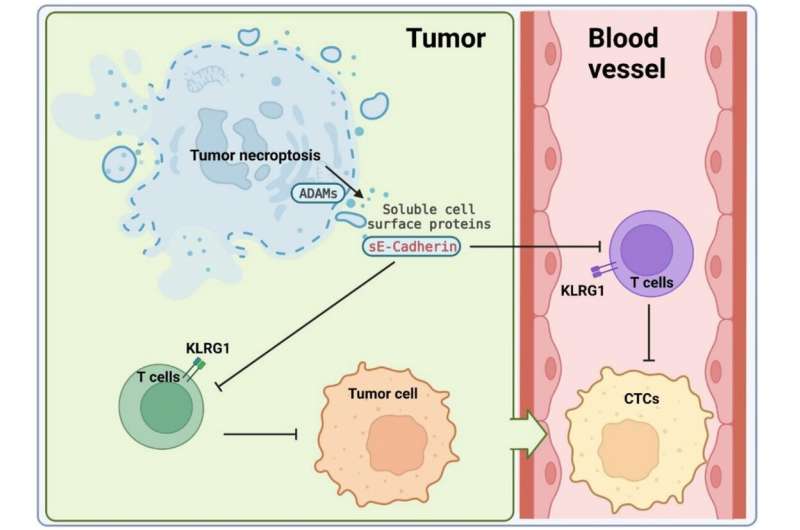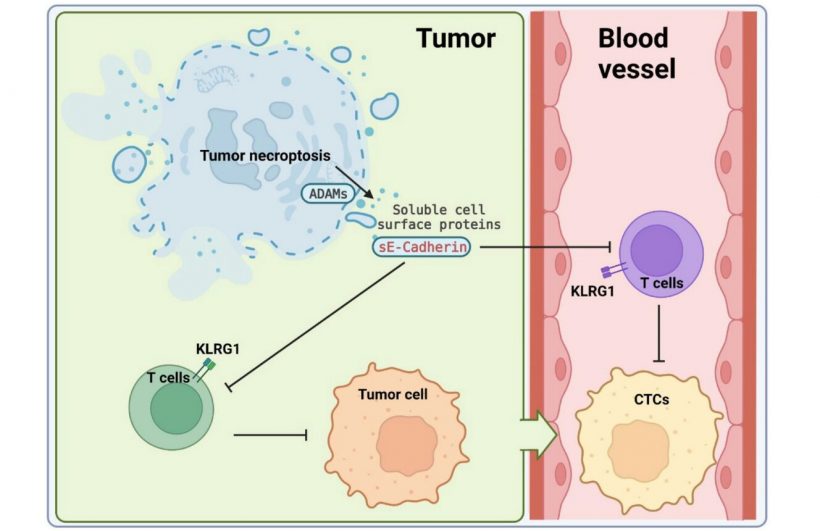
A new editorial paper was published in Oncotarget’s , titled “Tumor necroptosis promotes metastasis through modulating the interplay between tumor and host immunity.”
In this new editorial, researchers Zhaoshan Liu, Swati Choksi and Zheng-Gang Liu from the National Institutes of Health’s National Cancer Institute discuss cell death—which can happen as finely regulated programmed cell death (PCD) or non-regulated accidental cell death (necrosis). In addition to apoptosis, which is the first known PCD, several other forms of PCD such as necroptosis and ferroptosis have been identified and the underlying mechanisms of these forms of cell death have been well studied.
For necroptosis, a regulated necrotic cell death, Mixed lineage kinase domain-like protein (MLKL) was found to be the key executor of the death process and its oligomerization and translocation to the plasma membrane results in the shedding of cell surface proteins and the rupture of the cell plasma membrane of necroptotic cells. The role of the different forms of PCD in tumorigenesis has been extensively investigated.
While apoptosis and ferroptosis inhibit tumor progression, necroptosis seems to have a promoting role in tumor progression. The researchers here recently found that necroptosis is the main form of cell death observed in tumor necrosis, the foci of cell death in core regions of solid tumors under hypoxia and nutrient deprivation. More importantly, they found that blocking necroptosis leads to the inhibition of metastasis in mouse breast cancer models.
“Developing novel necroptosis inhibitor[s] by targeting other proteins such as MLKL may be critical for successfully blocking necroptosis in cancer and mitigating metastasis,” the researchers conclude.
More information:
Zhaoshan Liu et al, Tumor necroptosis promotes metastasis through modulating the interplay between tumor and host immunity, Oncotarget (2023). DOI: 10.18632/oncotarget.28404
Journal information:
Oncotarget
Source: Read Full Article
